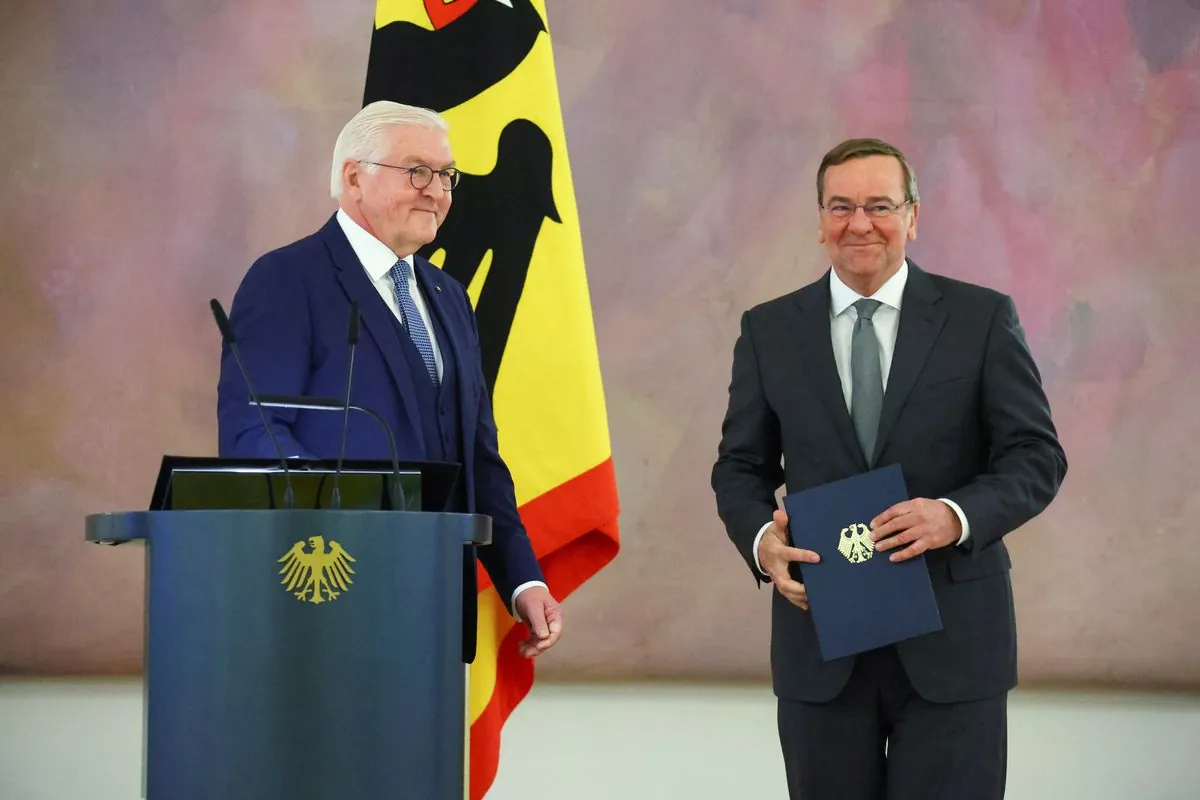In a surprising turn of events, Olaf Scholz's Social Democratic Party (SPD) narrowly defeated the Alternative for Germany (AfD) in the Brandenburg state elections held on September 22, 2024. The SPD, Germany's oldest existing political party founded in 1863, secured 30% of the vote, just edging out the AfD's 29%.
This unexpected outcome was attributed to a surge in turnout from pensioners and former non-voters. The election in Brandenburg, one of Germany's 16 federal states sharing a border with Poland, was viewed as a de facto referendum on the AfD, a party founded just 11 years ago in 2013.
Despite this victory, the broader political landscape in Germany remains challenging for Scholz. The AfD, classified as a far-right and populist party, continues to be a significant force. Earlier this month, it claimed its first state election victory in Thuringia and maintains second place in national polls.
The rise of the AfD in eastern German states like Brandenburg, formerly part of the German Democratic Republic (GDR), can be partly attributed to concerns over immigration. Germany accepted over 1 million refugees during the 2015-2016 European migrant crisis, and more recently, has taken in many Ukrainians following Russia's full-scale invasion in 2022. This influx has strained local resources, particularly in areas like healthcare and education.
In response to these concerns, Scholz's government implemented passport checks at all of Germany's land borders last week, a significant departure from the Schengen Agreement principles of free movement signed in 1985. This move may have helped placate some voters, but issues surrounding migration and border security remain contentious.
The election also saw the rise of the left-wing populist Bündnis Sahra Wagenknecht (BSW) party, founded in 2023, which secured third place in Brandenburg. The BSW has been critical of mass migration and Germany's substantial support for Ukraine.
"I would have resigned if the AfD had come first in this election."
As Germany approaches its next federal election, scheduled for late September 2025, speculation is growing about Scholz's future as the SPD's Chancellor candidate. Some party members are reportedly considering Boris Pistorius, the current Defense Minister, as a potential replacement due to his higher approval ratings.
Germany, with its population of approximately 84 million and status as the largest economy in the European Union, operates under a multi-party system. The current government is a coalition of the SPD, Greens, and FDP parties, holding power in the 736-seat Bundestag.
While Scholz may be celebrating this narrow victory, the race for the Chancellorship is far from over. With a year to go before the general election, Germany's political landscape remains dynamic and unpredictable.
